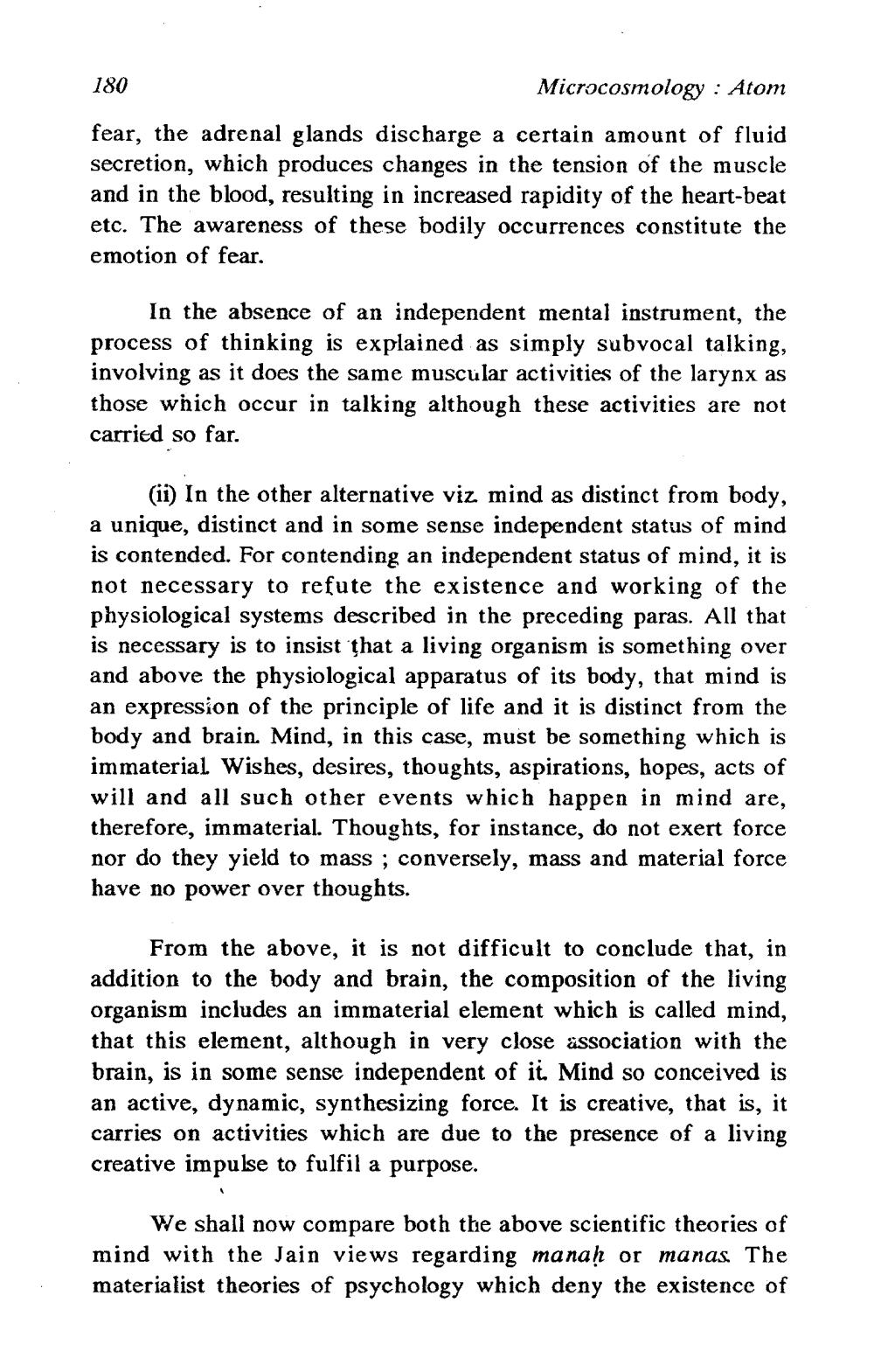________________
180
Microcosmology: Atom
fear, the adrenal glands discharge a certain amount of fluid secretion, which produces changes in the tension of the muscle and in the blood, resulting in increased rapidity of the heart-beat etc. The awareness of these bodily occurrences constitute the emotion of fear.
In the absence of an independent mental instrument, the process of thinking is explained as simply subvocal talking, involving as it does the same muscular activities of the larynx as those which occur in talking although these activities are not carried so far.
(ii) In the other alternative viz. mind as distinct from body, a unique, distinct and in some sense independent status of mind is contended. For contending an independent status of mind, it is not necessary to refute the existence and working of the physiological systems described in the preceding paras. All that is necessary is to insist that a living organism is something over and above the physiological apparatus of its body, that mind is an expression of the principle of life and it is distinct from the body and brain. Mind, in this case, must be something which is immaterial. Wishes, desires, thoughts, aspirations, hopes, acts of will and all such other events which happen in mind are, therefore, immaterial. Thoughts, for instance, do not exert force nor do they yield to mass; conversely, mass and material force have no power over thoughts.
From the above, it is not difficult to conclude that, in addition to the body and brain, the composition of the living organism includes an immaterial element which is called mind, that this element, although in very close association with the brain, is in some sense independent of it. Mind so conceived is an active, dynamic, synthesizing force. It is creative, that is, it carries on activities which are due to the presence of a living creative impulse to fulfil a purpose.
We shall now compare both the above scientific theories of mind with the Jain views regarding manaḥ or manas. The materialist theories of psychology which deny the existence of




